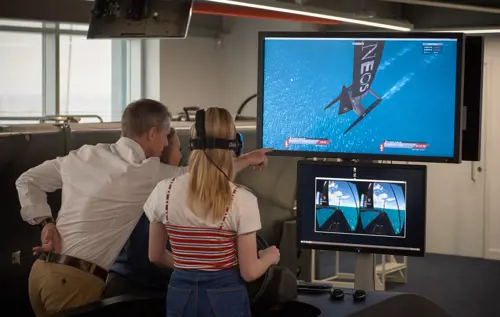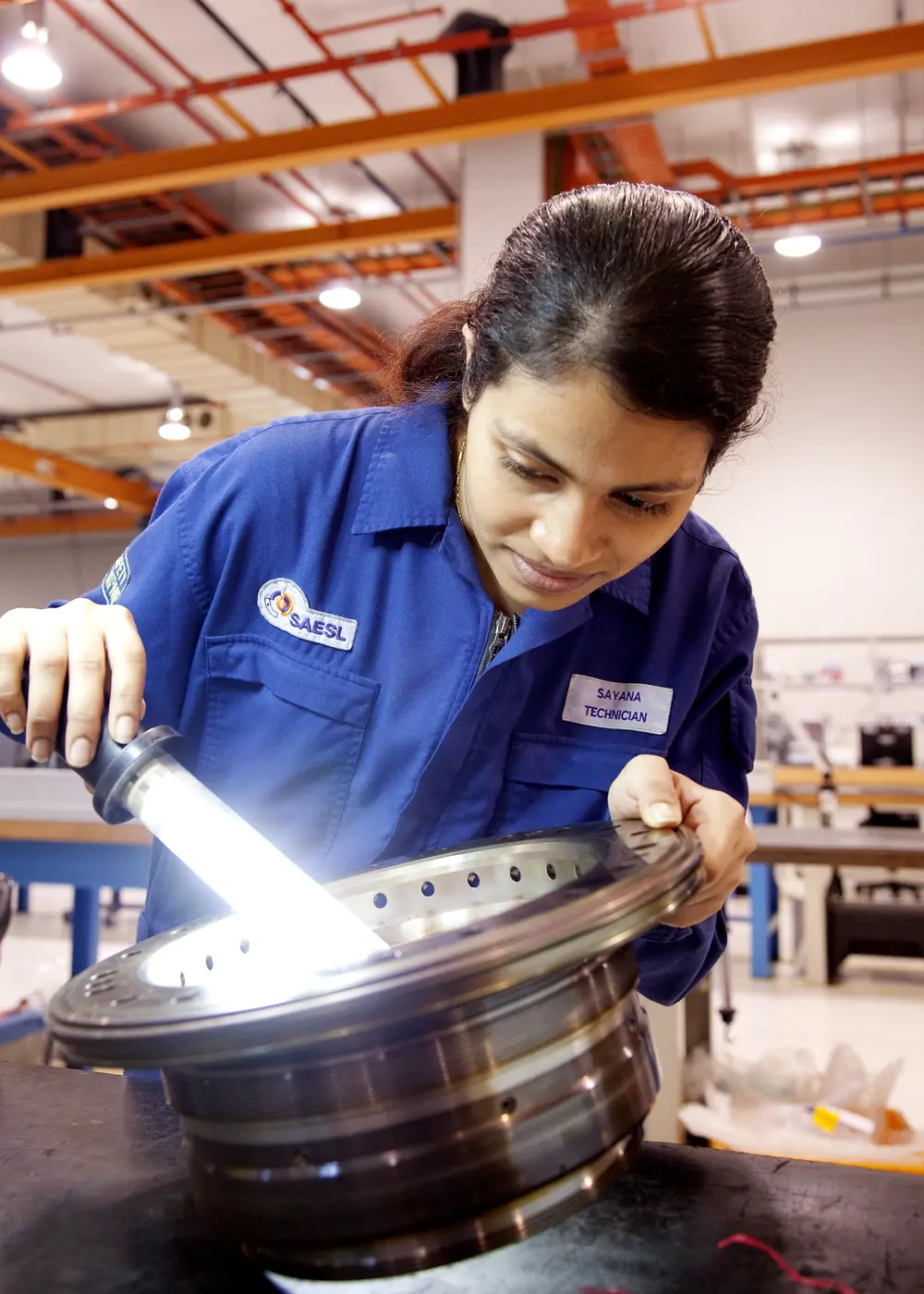
Marine engineer
Marine engineers design, build and repair boats, ships, submarines, offshore platforms and drilling equipment.
What is marine engineering?
Marine engineering is the operation, maintenance and monitoring of mechanical systems aboard marine vessels, including boats, ships and submarines.
What do marine engineers do?
Marine engineers design, build and repair boats, ships, submarines, offshore platforms and drilling equipment.
Their responsibilities include ensuring the safe and efficient operation of marine systems. They often work on improving vessel performance, addressing technical issues, and implementing innovations in marine technology.
What makes marine engineers different?
Marine engineers draw on lots of different engineering fields, including electrical engineering, electronic engineering, computer science, and mechanical engineering.
Factfile
- Starting salary (graduate)
- £24,000 - £32,000
- Example job titles
- Marine engineer, marine technician. watercraft engineer, ocean engineer, naval engineer, ship design engineer
- Desirable skills
- Numerical, analytical, problem solving, team work and leadership
- Useful subjects
- Maths, physics, computing, design technology
Working life
What is it like being a marine engineer?
Depending on the industry you work in, you could be be at a shipyard, in an office, on a ship, at a port, or underwater.
Your working environment may be outdoors, in all weather types. It can be physically demanding and you may need to spend some nights away.
How do marine engineers contribute to society?
- Transportation: they design, build and maintain ships and boats.
- Ocean: they work on offshore structures, underwater vehicles, and the coast.
- Environment and sustainability: they develop technical solutions to preserve and restore our ocean systems, and to provide clean, renewable offshore energy.
- Maritime: they design, build and manage ports, harbours and sea defences.

Marine engineers using virtual reality simulator
If you're interested in ocean-going technology and enjoy tackling important technical problems, then marine engineering might be the right career for you.

The future
Where could marine engineering take me?
You'll have lots of transferable skills that could lead you into other engineering roles.
Marine engineers often cross over with other engineering careers. Some of these areas require the assistance of marine engineers and the skills required on a project can be similar, such as:
- Civil engineering: civil engineering concepts are a key part of designing the infrastructure of shipping – such as bridges, ports, and tunnels.
- Electrical engineering and robotics: marine engineering may incorporate aspects of these disciplines, for example, when undertaking tasks using unmanned underwater vehicles (UUVs) or laying underwater cabling.
- Mechanical engineering: marine engineering is closely related to mechanical engineering, as mechanical engineers are responsible for the design of many shipboard systems, including steering, ventilation, and anchoring. Marine engineers require an understanding of many mechanical engineering topics including fluid dynamics and mechanics, structural mechanics, material strengths, and more.
Become a marine engineer
You can get into this job through:
- A university course
- A college course
- An apprenticeship
- Working towards this role
What qualifications do I need to become a marine engineer?
You usually need to complete a foundation degree or degree to become a marine engineer. Courses include:
- Marine engineering
- Marine technology
- Naval architecture
- Offshore engineering
What are the typical entry requirements for these courses?
You'll usually need:
- 4 or 5 GCSEs at grades 9 to 4 (A* to C), or equivalent, including English, maths and science
- 2 or 3 A levels, or equivalent, including maths and a science for a degree
Work experience
You could try to get some work experience during your course through internships, summer or Easter holiday schemes, or do a placement year in industry. Some degree courses offer a placement year, as part of the degree. Alternatively, you could apply for a summer internship to gain some experience.
Think engineering could be for you?
Become an engineer
